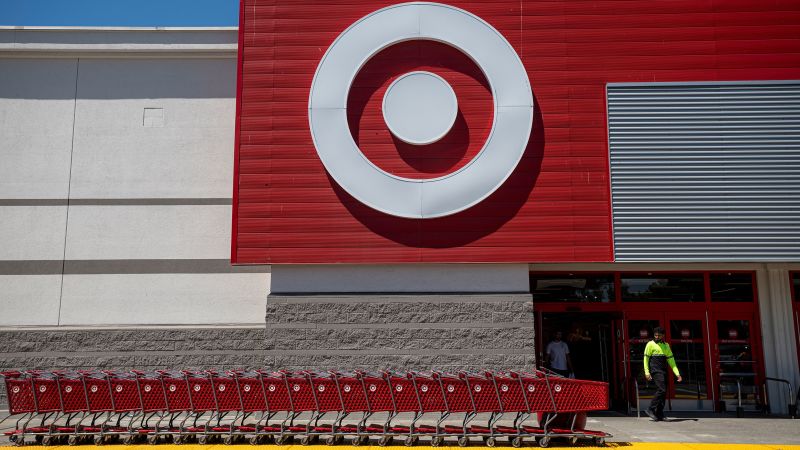In a significant leadership change, Target Corporation has announced the impending resignation of its CEO, Brian Cornell, after an 11-year tenure. This strategic shift comes at a time when the retail giant is grappling with declining sales and considerable criticism over its recent retractions on diversity, equity, and inclusion (DEI) initiatives. Cornell’s departure was anticipated by industry insiders, who speculated that Target would benefit from bringing in external leadership. Instead, the company has decided to name an internal successor, Michael Fiddelke, who is currently the Chief Operating Officer. Fiddelke has a deep-rooted history with Target, having begun his career as an intern and working for the organization for two decades. He is set to officially take over as CEO on February 1, 2026.
Cornell expressed confidence in Fiddelke’s capability to guide the company toward renewed growth, emphasizing his extensive experience and insider knowledge. However, Cornell, who has served as CEO since 2014, will remain with the company in a capacity as Executive Chairman. During his leadership, he implemented transformative strategies, including the remodeling of stores and a heightened focus on enhancing the chain’s online presence to better compete against formidable rivals like Amazon.
Despite Cornell’s previous successes, Target has faced substantial challenges in recent years due to several strategic missteps. Sales have been adversely impacted by a noticeable decline in consumer interest in non-essential items, particularly home goods and apparel. The company has also endured heightened competition from major retailers such as Walmart and Costco. Recently published quarterly reports indicated a third consecutive period of falling sales, resulting in a notable drop in Target’s stock price—one of the poorest performances among S&P 500 companies this year. This stock decline has mirrored widespread investor sentiment that the company required a novel approach to its leadership and strategy, with critics pointing out the risks of selecting Fiddelke—an insider who had partaken in devising the current strategy.
Prominent analysts like Neil Saunders have expressed skepticism about this internal appointment, cautioning that it could perpetuate an “entrenched groupthink” mentality that has hindered Target’s adaptability to consumer needs. The contention revolves around Target’s lost ability to effectively engage with consumer demands, as noted by Saunders and others in the retail analytics space.
The last two years have notably been challenging for Target, particularly with the turbulence exacerbated in 2025. The company recently opted to reduce certain DEI programs, a decision that incited outrage among advocates of diversity and inclusion, who felt blindsided by these changes. Notably, two daughters of one of Target’s co-founders labeled these actions as a “betrayal,” reflecting broader discontent within their customer base. Furthermore, the discord surrounding DEI programs comes amid a general slowdown in consumer spending and changes in purchasing patterns, as many consumers now prioritize essentials over discretionary goods.
Adding to the complexities, Target’s unique position—being heavily reliant on nonessential merchandise—further complicates its recovery. Research indicates that over half of the products Target offers are discretionary, while its competitors like Walmart thrive on staples, with approximately half their sales derived from grocery items. This disparity has made Target particularly vulnerable in current market conditions, wherein consumers are gravitating towards essentials due to inflation and rising living costs.
Target’s strategies and market positioning suffered a major upheaval due to over-accumulated inventory during the pandemic and subsequent changes in spending habits. Following years of considerable growth, especially during the early pandemic phase when households invested significantly in home improvements and essentials, Target found itself overextended with merchandise that failed to match the market’s revised priorities post-pandemic.
The company has also faced social media backlash and threats surrounding its LGBTQ-themed merchandise, particularly during the Pride Month promotions, further impacting customer trust and resulting in notable declines in sales.
As Fiddelke prepares to step into the role of CEO, he acknowledges the need for significant improvement, stating that the company is not currently achieving its potential. He has outlined plans to revamp Target’s merchandise to capture contemporary trends better and improve the shopping experience at physical locations. New initiatives such as “Fun 101,” which seeks to leverage heightened consumer interest in electronics and home goods, are part of the strategic pivot.
However, uncertainty remains regarding whether Target can resolve its internal challenges without embarking on more drastic changes. Some analysts believe that the outlook for Target is deteriorating despite its ability to navigate current tariff issues and have warned that unless aggressive corrective measures are taken, Target may continue to lag behind its competitors. The evolving market landscape presents a formidable challenge as Target aims to revitalize itself under new leadership.












